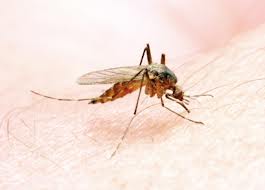Stopping malaria and unraveling epigenetics in embryonic development
Amsterdam, May 10th 2013-
Also
this week MedZine brings you the latest medical news on various medical
specialisms. In this editorial two striking studies are highlighted.
The first describes how bacteria can be used to stop malaria. The second
study sheds light on how modifications in key epigenetic markers
influence human embryonic development.
Using bacteria to stop malaria
In 2010, malaria affected 219 million people and caused an estimated 660,000 deaths. Malaria is transmitted to humans via mosquitoes and this step can now be prevented. A study by Bian and colleagues published in Science shows that bacteria can be used to stop the transmission of malaria from mosquitoes to humans. The researchers demonstrate that the Wolbachia bacteria wAlbB can be carried by the malaria mosquito vector (Anopheles stephensi) and the bacteria spread throughout the entire mosquito population. Mosquitoes carrying the bacteria were introduced into a population of mosquitoes not carrying the bacteria and within eight generations the entire population was carrying the Wolbachia bacteria. Moreover, the researchers showed that the bacteria can prevent those mosquitoes from transmitting malaria parasites to humans. This promising approach hands scientists and world health officials an important tool to fight malaria. It is likely that once released into the mosquito population the bacteria won’t need to be reapplied. This makes this approach also economically attractive.
The effects of modifications in epigenetic markers on embryogenesis
Epigenetic modifications—collectively known as the epigenome—control which genes are turned on or off without changing the DNA sequence such as DNA methylation and histone modification. Epigenetic modification provides cells with an additional tool to fine-tune the regulation of gene expression. Xie and colleagues now published the first comprehensive analysis of epigenetic changes that occur during development in Cell. The researcher discovered how modifications in key epigenetic markers influence human embryonic stem cells as they differentiate into specialized cells in the body. This was done by examining the state of H1 human embryonic stem cells, before and after they developed into specific cell types. Sections of the DNA that activate regulatory genes (promoters) that are active in early developmental stage are often CG rich. This means that from the form bases that make up DNA (A, C, G, and T) the C and G are relatively more abundant and this correlates with DNA methylation. In contrast, the promoters for genes expressed preferentially at later stages are often CG poor. This suggests that distinct epigenetic mechanisms regulate early and late stages of development. A better understanding of the embryonic development helps us to understand what is going wrong in diseases like cancer. In addition, this knowledge is important for regenerative medicine because it gives clues about how to reverse the process and turn normal adult cells into stem cells.
Source: Eurekalert, Science and Cell







